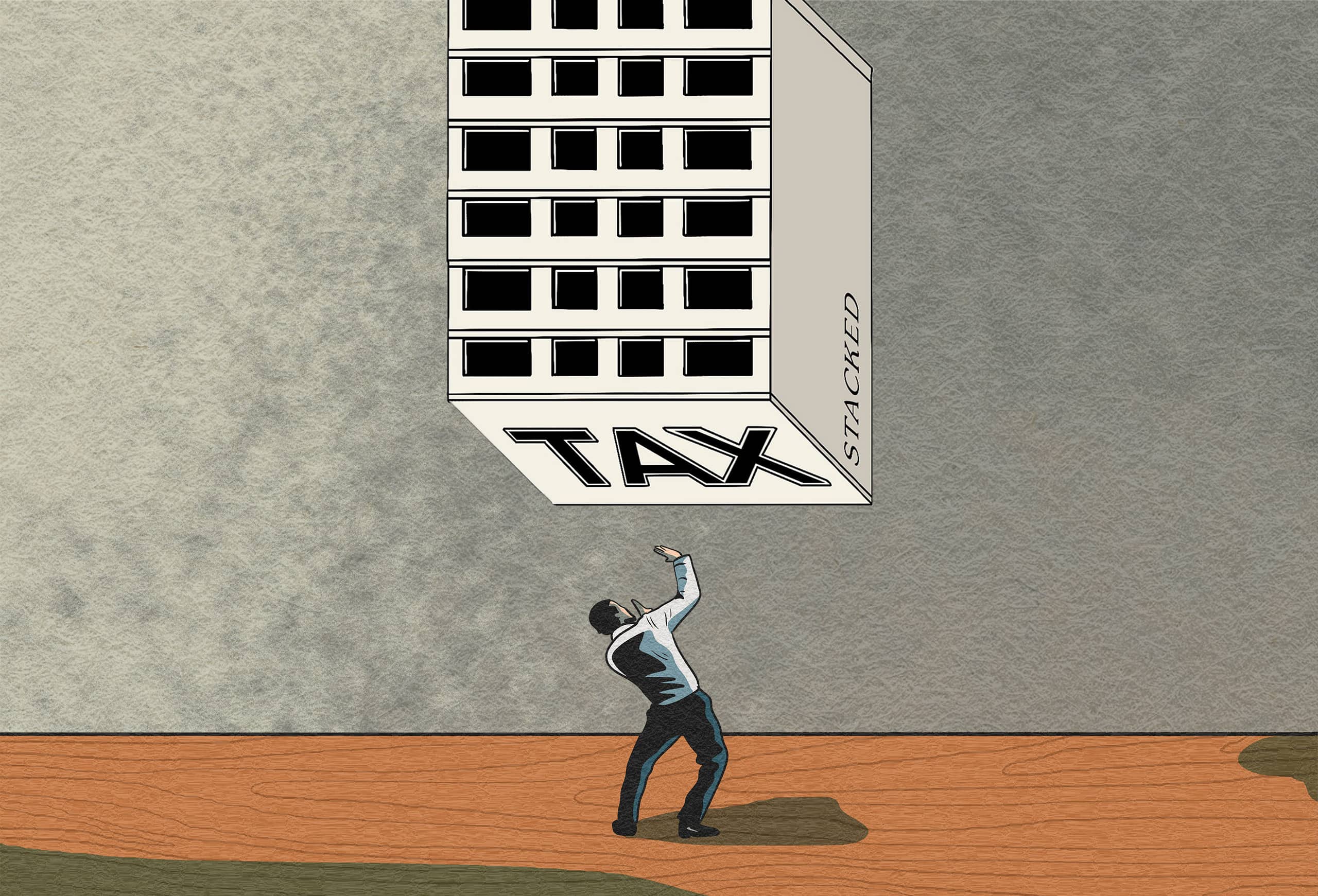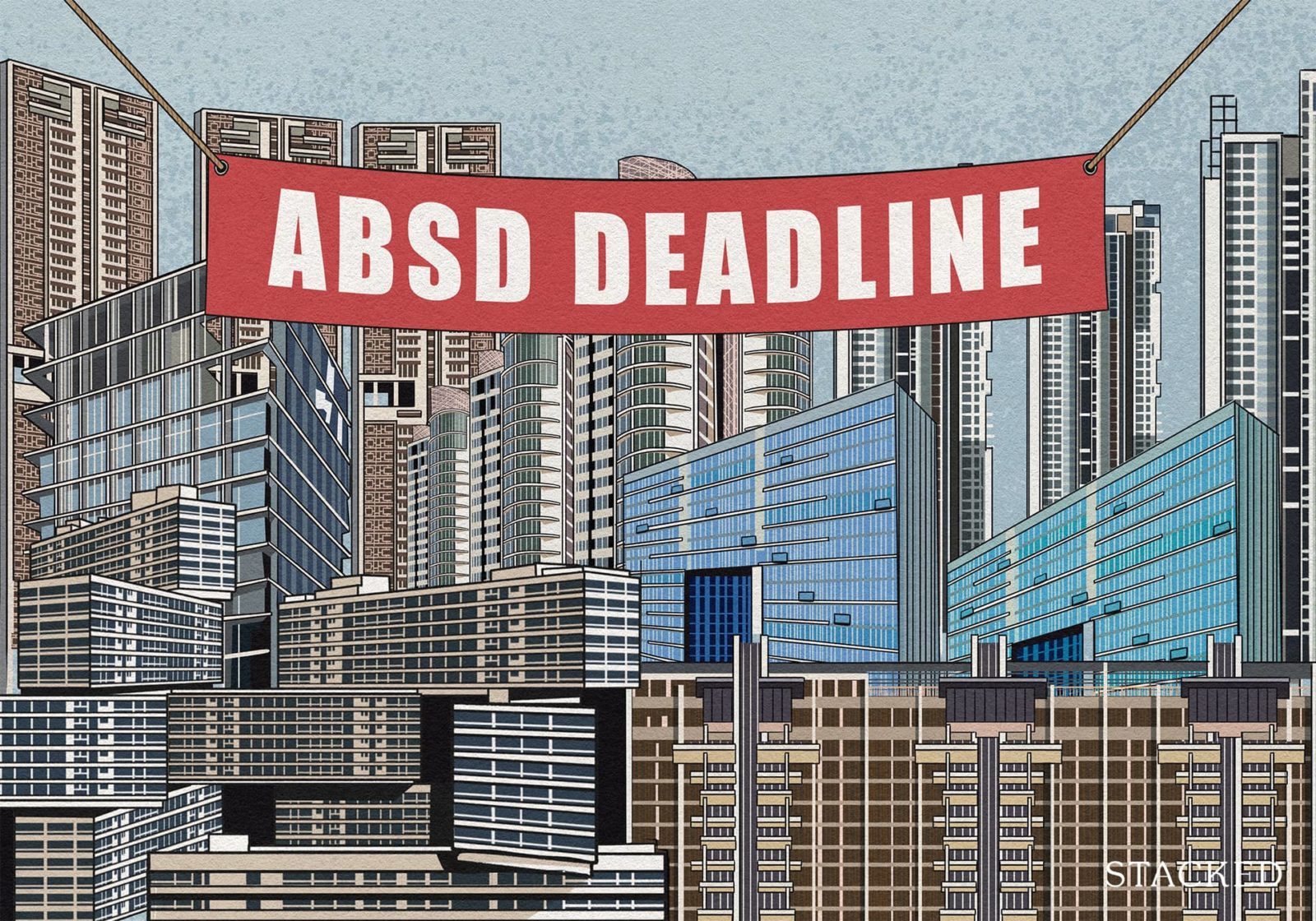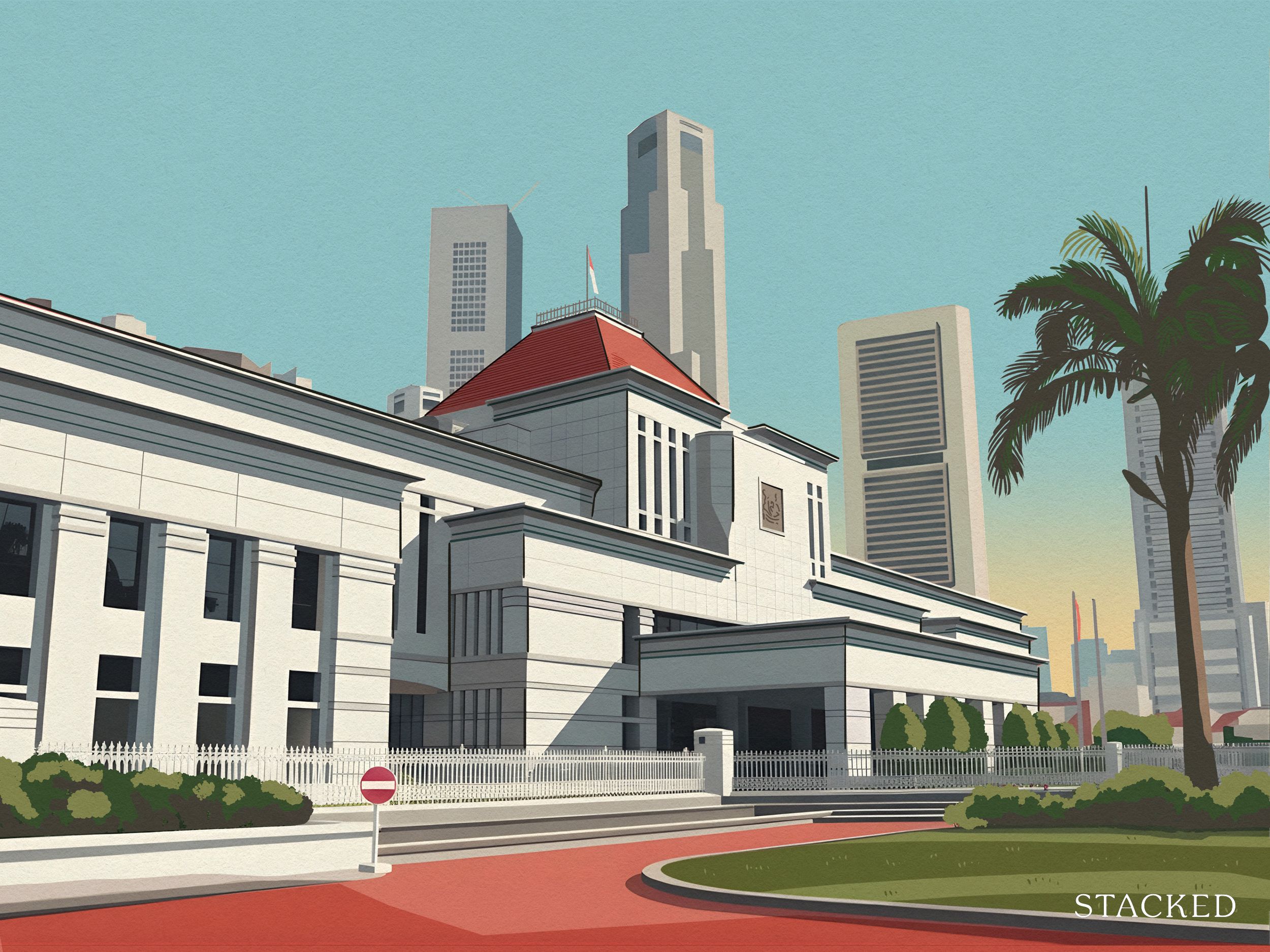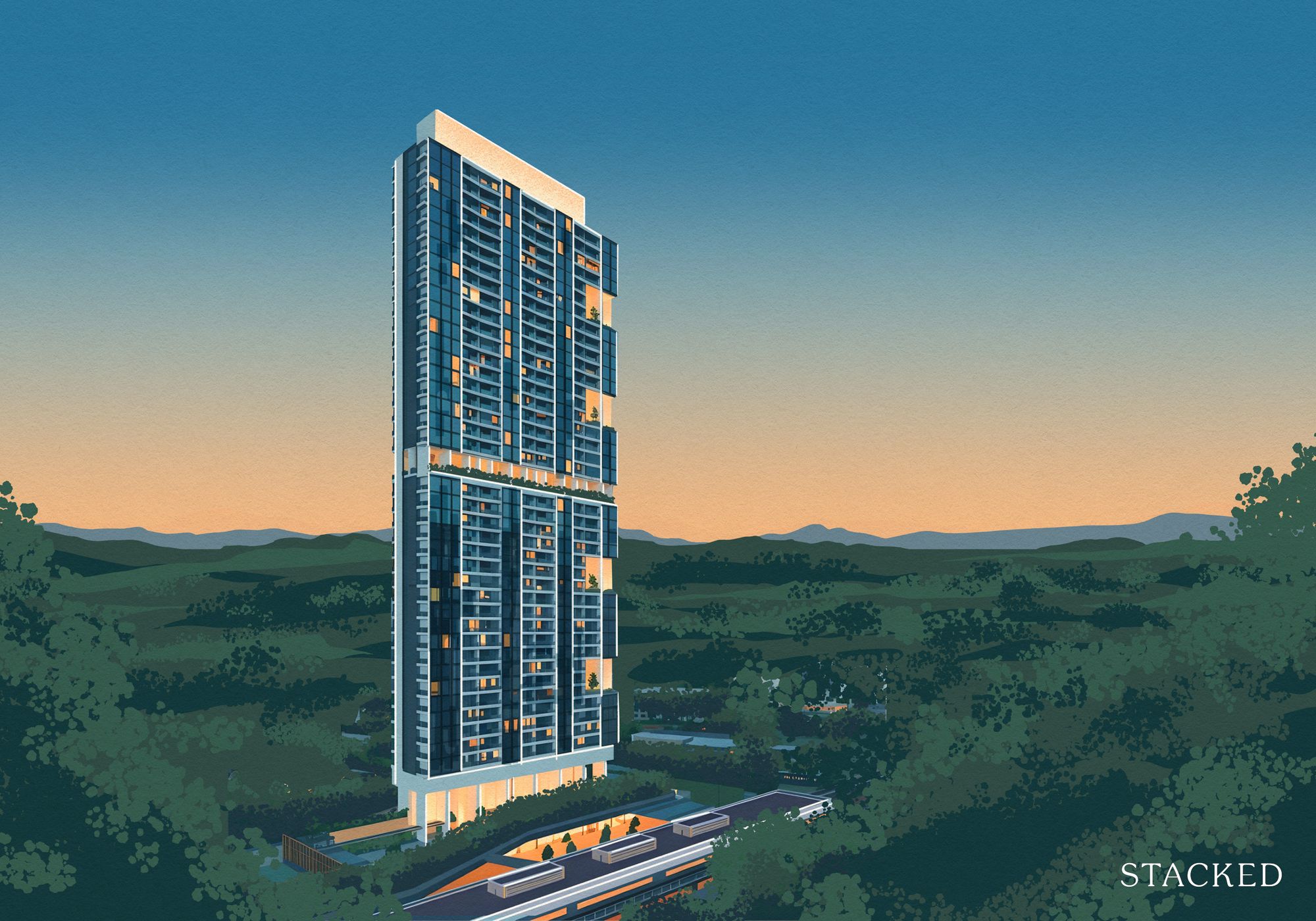New ABSD Rates In 2023: Here’s Everything You Need To Know About The Additional Buyers Stamp Duty In Singapore
May 23, 2023

The so-called “temporary” ABSD measure has now been with us for over a decade – and over the years there have been changes. The multiple revisions have, we notice, caused some confusion among buyers; and many first-timers get confused by news about developer ABSD deadlines (which don’t impact them directly, but can still have an effect).
Key Takeaways
- Properties bought in trust now incur 65% ABSD upfront, making it harder to avoid ABSD.
- Using CPF for ABSD deduction is different for new launch and resale properties.
- ABSD can be avoided for new Executive Condominiums when upgrading from a flat to a condo.
- Each property counts separately for ABSD purposes, even if purchased under a single transaction.
- The highest ABSD rate will apply to buyers with different profiles, even if co-purchasing.
Here’s the latest rundown:
ABSD Singapore rates as of today
ABSD Singapore rates, as of 2023 after the recent cooling measures, are as follows:
| First residential property | Second residential property | Third and subsequent residential property | |
| Singapore Citizens | No ABSD | 20% of price or valuation, whichever is higher | 30% of price or valuation, whichever is higher |
| Permanent Residents | 5% of price or valuation, whichever is higher | 30% of price or valuation, whichever is higher | 35% of price or valuation, whichever is higher |
| Foreigners* | 60% of price or valuation, whichever is higher | 60% of price or valuation, whichever is higher | 60% of price or valuation, whichever is higher |
| Non-Housing Developer Entity/Any residential property transfer to a Trustee (or declared by a Trustee as being held on) living trust for a beneficiary | 65% | 65% | 65% |
| Developers | 40%, but 5% non-remissible | 40%, but 5% non-remissible | 40%, but 5% non-remissible |
*With the exception of US Nationals, and Nationals and PRs of Iceland, Liechtenstein, Norway, and Switzerland. Buyers of these profiles pay the same ABSD rates as Singapore Citizens.
ABSD Singapore rates for developers versus ABSD rates for buyers: What’s the relationship?
The two are not the same, but the ABSD rates faced by developers can impact pricing.
Property developers pay 40 per cent of the land price for ABSD in Singapore when they purchase the plot. If they are able to complete and sell the entire project within five years, they may claim ABSD remission (this is 35 per cent, as five per cent is non-remissible).

Higher ABSD rates in Singapore also have an indirect impact on overall pricing (due to the risk posed to developers), and on en-bloc potential (as the five-year time limit and higher tax discourage purchases of the largest condo plots).
Important things to note about ABSD in Singapore
The following is a combination of commonly misunderstood ABSD issues. Some are longstanding points of confusion, and others have changed due to rules tweaks. Do take note before you buy:
1. Buying properties in trust may not help you to avoid ABSD in Singapore
As of April 2023, properties bought in trust will incur 65 per cent ABSD upfront (it was previously 35 per cent), just as if they had been purchased by any other entity. Prior to the new ruling, it was possible for the property to avoid ABSD if the trust had no identifiable beneficial owner [2]. Under the new rules, this no longer matters.
As such, the ABSD is payable upfront when the residential property is transferred to any living trust. That said, the trustee can apply to IRAS for a refund of ABSD (trust) if certain conditions are satisfied [3].
The amount remitted will be based on the difference between the ABSD (Trust) rate of 65% and ABSD rate corresponding to the profile of the beneficial owner with the highest applicable ABSD rate. Do note that an application for the refund must be made to IRAS within six months after the date of execution of the instrument.
2. If you want to use your CPF to pay ABSD, there’s a difference between resale and new launch properties
For new launch (under construction) properties, the ABSD can be deducted directly from your CPF Ordinary Account (CPF OA).

For resale or already completed properties, you need to pay the ABSD in cash first (all stamp duties are payable within 14 days of completing the transaction). You can then claim reimbursement from your CPF account. Do also remember that the claim back can only start after the sale of your existing property (upon exercise of OTP).
More from Stacked
Can Resale Condos Maintain Their Momentum For The Rest Of 2021?
First-time buyers and upgraders were hit by more bad news, for end-June 2021. It was expected that a return to…
Keep this in mind when buying a resale/completed property, as it significantly increases the amount you need to have in hard cash – at least during the initial payments.
3. If you’re just upgrading from a flat to a condo, ABSD can be avoided for NEW Executive Condominiums (ECs)
Normally, if you buy your condo before selling your flat, you still need to pay ABSD first. You can only get ABSD remission if you sell your flat within six months of buying the condo, and only if you’re a married couple with at least one Singapore Citizen.
If you buy a new EC, however, you don’t need to pay the ABSD upfront (but you still need to sell your previous flat within six months) [4].
If you were to sell the flat before you buy a condo, none of this is relevant, as you won’t face ABSD on the first property (which would then be the condo).
4. Buying more than one property at once? Each property counts separately for ABSD purposes.
What matters is the count of properties you own, and not the number of residential property transactions.
For example, say you purchase two units at once from a developer, as a Singapore Citizen (e.g., one for yourself, one unit for your children next door).
Even if the two purchases are done under a single contract, each property still counts as separate for ABSD purposes. You can, however, choose which of the two units the ABSD would apply to (choose the cheapest one, of course!) [1]
Along these lines, if you buy two properties under a single transaction, and later buy a third, then the third would be subject to 30 per cent ABSD.
5. For buyers of different profiles, the highest ABSD rate will apply
Let’s say a Singapore Citizen and a foreigner both purchase a second property. In this instance, the ABSD rate of 60 per cent (for foreigners), and not the rate of 20 per cent (for Singapore Citizens) would apply.
In these instances, it may be more beneficial for the second property under one of the couple’s names, rather than both.
This can also be applied to Singapore Citizens sharing to buy a property with different ownership. Let’s say in a scenario where 4 people were to invest in a property, where 3 have not bought any property before, while one has 4 properties under his/her name. Even if the 4th person only holds 1% ownership, the maximum ABSD of 30 per cent for Singapore Citizens will still be applied here.
Most times, we’d advise Singaporean upgraders to sell their flats before buying a condo, to avoid all the potential headaches with ABSD (as well as the desperate rush to sell within six months, which often follows). But we understand that’s not always possible – if so, it may be a good reason to consider factors like a new EC over private condos, or new launches over a resale unit. Reach out to us at Stacked if you need help, and we can walk you through the details.
In the meantime, check out our in-depth reviews of new and resale condos alike, to ensure your purchase is a wise one.
Article Sources
1) Inland Revenue Authority of Singapore. “Additional Buyer’s Stamp Duty (ABSD), https://www.iras.gov.sg/taxes/stamp-duty/for-property/buying-or-acquiring-property/additional-buyer’s-stamp-duty-(absd)”
2) Ministry of Finance, “Additional Buyer’s Stamp Duty (ABSD) For Residential Properties Transferred Into A Living Trust, https://www.mof.gov.sg/news-publications/press-releases/additional-buyer-s-stamp-duty-(absd)-for-residential-properties-transferred-into-a-living-trust”
3) Inland Revenue Authority of Singapore. “Remission of ABSD (Trust), https://www.iras.gov.sg/taxes/stamp-duty/for-property/appeals-refunds-reliefs-and-remissions/common-stamp-duty-remissions-and-reliefs-for-property/remission-of-absd-(trust)”
4) Inland Revenue Authority of Singapore. “Acquisition of HDB Flats and new Executive Condominium (EC) Units, https://www.iras.gov.sg/taxes/stamp-duty/for-property/appeals-refunds-reliefs-and-remissions/common-stamp-duty-remissions-and-reliefs-for-property/Acquisition-of-HDB-Flats-and-new-Executive-Condominium-(EC)-Units”
At Stacked, we like to look beyond the headlines and surface-level numbers, and focus on how things play out in the real world.
If you’d like to discuss how this applies to your own circumstances, you can reach out for a one-to-one consultation here.
And if you simply have a question or want to share a thought, feel free to write to us at stories@stackedhomes.com — we read every message.
Frequently asked questions
What are the current ABSD rates for Singapore citizens buying their second or third property in 2023?
Can properties bought in trust avoid ABSD in Singapore?
How does using CPF affect ABSD payments for resale and new launch properties?
Is it possible to avoid ABSD when upgrading from a flat to a condo in Singapore?
Does each property purchased count separately for ABSD purposes?
If two people of different profiles buy a property together, which ABSD rate applies?
Ryan J. Ong
A seasoned content strategist with over 17 years in the real estate and financial journalism sectors, Ryan has built a reputation for transforming complex industry jargon into accessible knowledge. With a track record of writing and editing for leading financial platforms and publications, Ryan's expertise has been recognised across various media outlets. His role as a former content editor for 99.co and a co-host for CNA 938's Open House programme underscores his commitment to providing valuable insights into the property market.Need help with a property decision?
Speak to our team →Read next from Singapore Property News

Singapore Property News Nearly 1,000 New Homes Were Sold Last Month — What Does It Say About the 2026 New Launch Market?

Singapore Property News The Unexpected Side Effect Of Singapore’s Property Cooling Measures

Singapore Property News The Most Expensive Resale Flat Just Sold for $1.7M in Queenstown — Is There No Limit to What Buyers Will Pay?

Singapore Property News Why Housing Took A Back Seat In Budget 2026
Latest Posts

New Launch Condo Reviews River Modern Condo Review: A River-facing New Launch with Direct Access to Great World MRT Station

On The Market Here Are The Cheapest 5-Room HDB Flats Near An MRT You Can Still Buy From $550K

On The Market A 40-Year-Old Prime District 10 Condo Is Back On The Market — As Ultra-Luxury Prices In Singapore Hit New Highs



































0 Comments